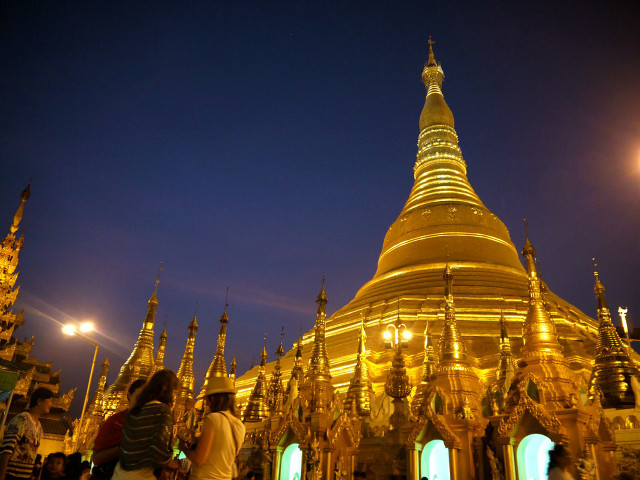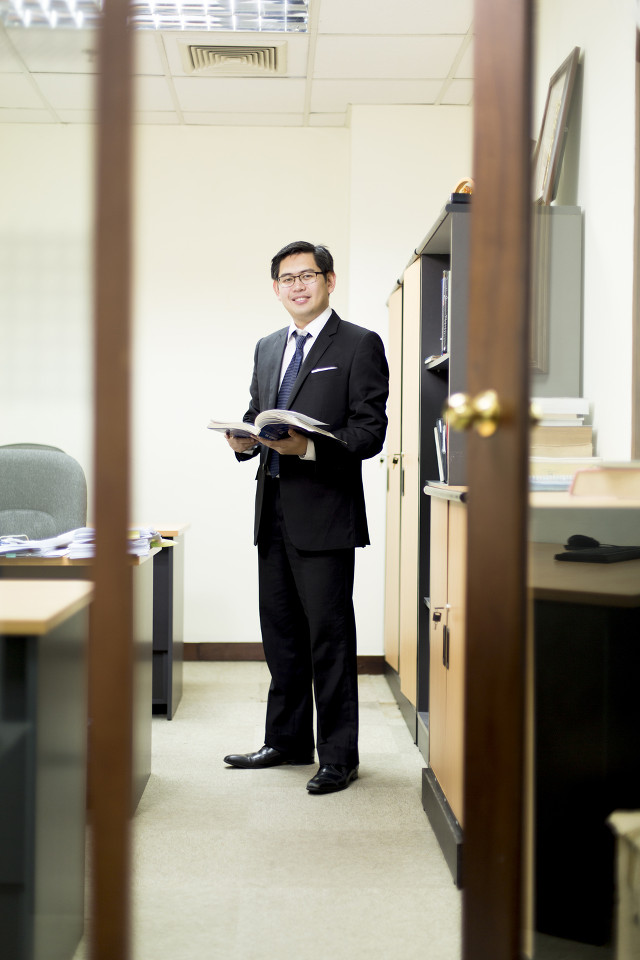SUMMARY
This is AI generated summarization, which may have errors. For context, always refer to the full article.

MANILA, Philippines – As far as success stories go, PJ Bernardo almost had it in the bag. Almost.
It was in April 2005 when the philosophy major graduated valedictorian of his batch at the Ateneo Law School. That same year he took the bar and placed 8th among nearly 6,000 applicants.
As expected of someone with this educational background, he spent some time teaching at his alma mater and working in some of the country’s top law firms and companies – the prestigious and long-winded Romulo Mabanta Buenaventura Sayoc & De los Angeles firm, included.
In 2011 he went to the United States for his masteral studies at Harvard Law School. The next year he passed the New York bar. And with the prospect of practicing law in the gleaming high-rise offices of New York, London, Hong Kong, or Singapore, the future for the eldest child of two was set. Or so he thought.

Now, one year after doing what only a handful of aspiring Filipino lawyers could dream of, PJ Bernardo finds himself in a modest room, happy that he, at least, has air conditioning and Wi-Fi. Wearing a suit, a pressed shirt, and an Italian tie, he goes off to work, which isn’t far.
His office building is the tallest one in the neighborhood but it’s only 20 stories high. And as he sits down for a client meeting, across the conference table, today’s client arrives dressed in a longyi – a sheet of cloth similar to a sarong – a tucked collared shirt, and a pair of rubber slippers. It’s 30 degrees outside and in the news, Aung San Suu Kyi has just announced her plan to run for president.
Welcome to Yangon, Myanmar.
Struggling with the realities
“Never in my wildest dreams would I ever have imagined that I would one day find myself there,” says the 34-year-old Bernardo. “I had no idea where Yangon was in the beginning. It was a struggle to come to grips with that, also because the reality didn’t quite fit my plan.”
And that was to work in one of those “flashy places” somewhere around the world, not a developing nation that had just emerged from half a century of military rule.
Bernardo came to the US at a time when it was still recovering from the 2008 financial crisis. “So the employment market was very bad,” he recalls.
Few companies were hiring, much less considering non-American applicants from a country like the Philippines. “So I thought I might as well go back to Asia.”
Bernardo was tipped by a friend about an opening in theYangon division of the Singapore-based law firm of Kelvin Chia Partnership. He didn’t even know where Yangon was, as he says. “They just told me that it’s this really booming place that’s just coming out of decades of dictatorship and the office wants to expand into the country in a big way.”
In December last year, he took the job.
The former capital of Burma (Myanmar), Yangon was once a booming Asian city. But half a century of military rule put all of that to waste as the country became isolated.
The past two years, however, have seen economic and political reforms that have begun to open up the country. According to CNN, “the new civilian government is keen to prove to the world that the country is open for business and is no longer such a risky investment.”
For foreign businesses looking to invest in a country with more than 60 million potential clients, Myanmar is a sleeping giant. And the person these companies need to talk to is PJ Bernardo.
“My job is to advise them on foreign investments, to be like a bridge,” he says. Kelvin Chia Yangon is the only licensed foreign legal consulting firm in Myanmar. And that doesn’t make the job any easier.
“The most difficult thing is the learning curve on Myanmar law,” Bernardo explains. “For one thing, it’s not even in English; it’s in Burmese.”
Local consultants provide assistance because foreigners aren’t allowed to practice without supervision by Myanmar-licensed lawyers. Learning the intricacies hasn’t exactly been easy. “Myanmar, being such a developing legal environment, doesn’t exactly have the same infrastructure on learning the law as, say, the Philippines.”
In Myanmar, there are no Supreme Court decisions, “so you don’t know what the latest jurisprudence is. A lot of it is based on customary practices on the part of the concerned government agency.” Their laws, which are from the 1940s, were adapted from neighboring India. “You just have to learn and roll with the punches,” says Bernardo. “They throw you in the water and you just have to learn to swim.”
No nightflife
And it was as deep a swim as one could. Public transportation in Yangon equates to non-metered taxis with drivers who don’t speak English, with cars dating back to the 60s. There’s no nightlife to speak of, and there are no Western fast-food retail chains either. Decent restaurants are few and far between. There are power outages 3 times a day and no hot water.
Aside from a few books and DVDs, “you’re just really left with yourself, your work, and your thoughts. And that was a struggle for me,” says Bernardo.
Yet 6 months into the job, Bernardo has found his stride. “I see it as lawyering on the edges of practice because you feel like there’s no guide. So I’m coming in at a time when a lot of the things we’re doing there have never been done before. It’s very intellectually and professionally challenging; it’s exciting.”
Everyone has grand plans about life or career. “A year ago, I was in Harvard and was having the time of my life planning what I was going to do. Now I’m in Yangon. Who would have expected that?”
The lessons are plenty. “The experience has taught me a lot about accepting to a certain degree where your life takes you. You can make plans, but they don’t necessarily work out the way they do, so you just have to accept it.”
At the same time, he says, “on a personal level, it’s also being able to face that whole reality of what life throws at you. You just have to make the most out of a different situation than what you’ve planned. And it turned out pretty well for me.
“I enjoy the work that I’m doing, and the locals I’m working with.” But, he pauses, “I’m just not quite used to the food yet.” – Rappler.com
Add a comment
How does this make you feel?
There are no comments yet. Add your comment to start the conversation.